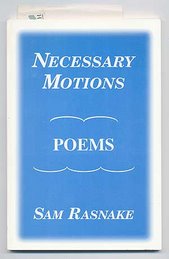suddenly, in every tree...
By way of example…
much & nothing, part 3
from my anthology of must read (a)merican poems
Tess Gallagher
Choices
I go to the mountain side
of the house to cut saplings
and clear a view to snow
on the mountain. But when I look up,
saw in hand, I see a nest clutched in
the uppermost branches.
I don’t cut that one.
I don’t cut the others either.
Suddenly, in every tree,
an unseen nest
where a mountain
should be.
*
As I read this piece by Tess Gallagher, collected in a marvelous anthology, The Poets Guide to the Birds (Anhinga Press, 2009), edited by Judith Kitchen and Ted Kooser, I find it supporting my premise of the writing process – allowing the poem to find us.  The grand awakening that is embodied in the line “Suddenly, in every tree” is the turning point – in my reading of the poem – for the poet to find his or her voice, and for the poem to settle into that voice. The poem’s final line posits that this is the way it should be.
The grand awakening that is embodied in the line “Suddenly, in every tree” is the turning point – in my reading of the poem – for the poet to find his or her voice, and for the poem to settle into that voice. The poem’s final line posits that this is the way it should be.
This is a remarkable poem that carries inside it the Buddhist principle of no nature, of being one with and not separate. In our creative selves, we may want to force – say – the poem, but that is not the truth, nor is it the way. The strongest reality is the unseen presence, the shadow figure, the vision. That part or place which is often ignored in the mad dash to find the great truth. If the unseen nest is not realized, all that remains is contrivance. It may be well-structured and well-accepted, but it’s not the real piece of writing it could have been.
I am certain that Gallagher would not want the reading of her poem to be limited to a focus on the creative process. The fact that it also speaks volumes – from such a few lines – about daily living, about relationships, about our connection with the natural world, about the self, is the underpinning of the poem’s strength.
Note how the nest, though hidden, unnoticed, is already well-established and thriving when the poem’s speaker, searching for what she believes is a greater find – vast drifts of snow over mountains – finds, as if by accident, the nest, the home. This realization shows that the speaker’s life will never be the same, and that is one of the true marks of greatness.








